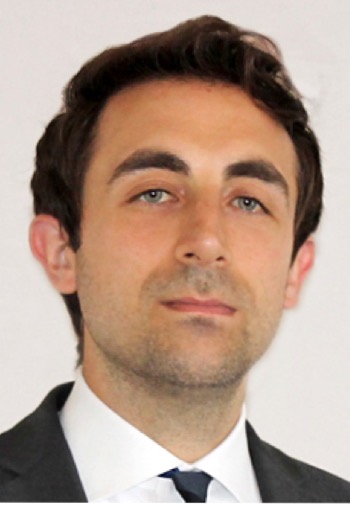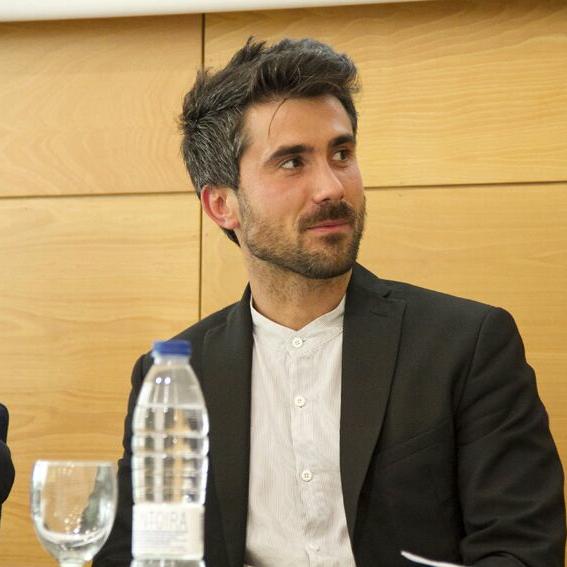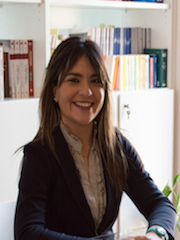Studying at the University of Verona
Here you can find information on the organisational aspects of the Programme, lecture timetables, learning activities and useful contact details for your time at the University, from enrolment to graduation.
Academic calendar
The academic calendar shows the deadlines and scheduled events that are relevant to students, teaching and technical-administrative staff of the University. Public holidays and University closures are also indicated. The academic year normally begins on 1 October each year and ends on 30 September of the following year.
Course calendar
The Academic Calendar sets out the degree programme lecture and exam timetables, as well as the relevant university closure dates..
| Period | From | To |
|---|---|---|
| 1° periodo lezioni (1A) | Sep 16, 2021 | Oct 30, 2021 |
| 1° periodo lezioni (1B) | Nov 5, 2021 | Dec 16, 2021 |
| 2° periodo lezioni (2A) | Feb 14, 2022 | Mar 26, 2022 |
| 2° periodo lezioni (2B) | Apr 4, 2022 | May 20, 2022 |
| Session | From | To |
|---|---|---|
| Prove parziali 9/12 CFU - Prove finali 6 CFU del periodo 1A | Nov 2, 2021 | Nov 4, 2021 |
| 1° appello invernale - dicembre 2021 | Dec 17, 2021 | Dec 23, 2021 |
| Sessione invernale - 2 appelli | Jan 8, 2022 | Feb 12, 2022 |
| Prove parziali 9/12 CFU - Prove finali 6 CFU del periodo 2A | Mar 28, 2022 | Apr 2, 2022 |
| Sessione estiva - 3 appelli | May 23, 2022 | Jul 27, 2022 |
| Sessione autunnale - 1 appello | Aug 25, 2022 | Sep 17, 2022 |
| Period | From | To |
|---|---|---|
| Festa di Tutti i Santi | Nov 1, 2021 | Nov 1, 2021 |
| Festa dell'Immacolata Concezione | Dec 8, 2021 | Dec 8, 2021 |
| Vacanze di Natale | Dec 24, 2021 | Jan 6, 2022 |
| Vacanze Pasquali | Apr 15, 2022 | Apr 19, 2022 |
| Festa della Liberazione | Apr 25, 2022 | Apr 25, 2022 |
| FESTA DEL LAVORO | May 1, 2022 | May 1, 2022 |
| Santo Patrono | May 21, 2022 | May 21, 2022 |
| Festa della Repubblica | Jun 2, 2022 | Jun 2, 2022 |
Exam calendar
Exam dates and rounds are managed by the relevant Law Teaching and Student Services Unit.
To view all the exam sessions available, please use the Exam dashboard on ESSE3.
If you forgot your login details or have problems logging in, please contact the relevant IT HelpDesk, or check the login details recovery web page.
Should you have any doubts or questions, please check the Enrollment FAQs
Academic staff
 francesca.bazzani@univr.it
francesca.bazzani@univr.it
 bernardo.calabrese@univr.it
bernardo.calabrese@univr.it
 roberto.flor@univr.it
roberto.flor@univr.it
 stefano.gatti@univr.it
stefano.gatti@univr.it
 mariangela.massella@univr.it
mariangela.massella@univr.it
 gustavoadolfo.nobilemattei@univr.it
gustavoadolfo.nobilemattei@univr.it
 cinzia.peraro@univr.it
cinzia.peraro@univr.it
 diego.tilola@univr.it
diego.tilola@univr.it
Study Plan
The Study Plan includes all modules, teaching and learning activities that each student will need to undertake during their time at the University.
Please select your Study Plan based on your enrollment year.
1° Year
| Modules | Credits | TAF | SSD |
|---|
2° Year activated in the A.Y. 2022/2023
| Modules | Credits | TAF | SSD |
|---|
| Modules | Credits | TAF | SSD |
|---|
| Modules | Credits | TAF | SSD |
|---|
| Modules | Credits | TAF | SSD |
|---|
Legend | Type of training activity (TTA)
TAF (Type of Educational Activity) All courses and activities are classified into different types of educational activities, indicated by a letter.
History of law and cultural heritage (2022/2023)
Teaching code
4S009822
Teacher
Coordinator
Credits
6
Language
English
Scientific Disciplinary Sector (SSD)
IUS/19 - HISTORY OF MEDIEVAL AND MODERN LAW
Period
2nd lecture period (2A) dal Feb 13, 2023 al Mar 25, 2023.
Learning objectives
The course is included in the learning area on Food, fashion and cultural heritage. The course illustrates the emergence of the need, which has existed since the modern age, to identify and protect a set of tangible and intangible assets in which the civil community recognises a founding and central element of its cultural identity, a plurality of cultural elements belonging to the common tradition of a people and of which the law itself is an integral part. Taking into consideration a broad historical period, ranging from the recovery of the various traditions of numerous Italian cities, carried out for example by Muratori in the 18th century, to the contemporary movements claiming the original cultural heritage of the natives of America or Australia. The role of the law will be highlighted and the ways in which it has hindered or favoured the development of these cultural legacies, and above all, the salient stages of the evolution of Italian and international legislation and case-law on these issues will be studied, with a focus on the constitutional principles involved in the affirmation of ancient traditions.
By the end of the course, students will have acquired basic fundamental knowledge about the emergence of the concept of cultural heritage, its progressive spread and the ways and forms through which law has contributed to this historical evolution.
Students will also acquire the ability to use the historical knowledge they have acquired to face and solve practical problems typical of the professional context in which they will operate. Students will also be able to verify the practical consequences of the theoretical framework and to set, in written and oral form (and also through group work, written exercises and the method of Problem Based Solving - PBS), the solution to concrete issues, using the appropriate and specific disciplinary vocabulary, adopting the correct lines of reasoning and argumentation, and formulating autonomous judgments. The teaching method used is functional to the continuous learning and updating of acquired knowledge.
Prerequisites and basic notions
To successfully attend the course, the student should possess the basics of public law (with particular regard to constitutional law) and an adequate historical perspective (with particular regard to modern and contemporary history). The fundamental concepts will however be resumed during the course.
Program
1. Notions in evolution (Monumentum, Art, natural beauty, historical heritage, landscape, cultural heritage, cultural heritage). 2. The origins (The protection of art in ancient Rome; The Late Antiquity: saving the classical heritage from ruin; Iconoclasm and the Council of Nicaea II; Late Middle Ages: the legal controversy on the Tabula picta). 3. The birth of the protection legislation (Roman and Tuscan Renaissance; 17th-18th century in Italy: the edicts on export and excavation. The cases of Volterra, Pompeii). 4. Problems of the late eighteenth century (The Napoleonic requisitions; Seven Letters to Miranda by Antoine de Quincy; The juridical and archaeological work of Carlo Fea; Chirograph of Pius VII). 5. The Restoration (Two concepts of museum: Capitoline Museums / Louvre; Antonio Canova and the restitutions; Edicts of Cardinal Pacca and pre-unification legislation; Law as Cultural Heritage: the historical school between Savigny and the Grimm brothers). 6. The Unification of Italy (The void of protection in the Kingdom of Sardinia and the legislative unification; The problem of the artistic trust after the capture of Rome; The fate of the ecclesiastical patrimony; Bills and administrative organization; Nasi Act). 7. At the turn of the two centuries (The gutting of historic centers - the Law on the Restoration of Naples; At the dawn of landscape protection: the Act on the Pinewood of Ravenna and the work of Luigi Rava; Law no. 386 of 27 June 1907 : establishment of the superintendencies; Rosadi Act n. 364 of 20 June 1909, "which establishes and establishes rules for the inalienability of antiquities and fine arts". 8. Fascism and identity of Italians (The figure of Giuseppe Bottai; Law 1 June 1939, n. 1089 "On the protection of things of artistic or historical interest"; Law 29 June 1939, n. 1497 "On the protection of natural beauties"; Crimes against the national artistic and historical heritage; Concordat and cultural heritage). 9. The dark side of Cultural Heritage: national identity as a factor of exclusion (from the Manifesto of race to the racial laws). 10. The Constitution (Articles 6, 12 and 33 and the preparatory work) 11. The Constitution (Article 9 and the preparatory work) 12. The Republic (the Franceschini Commission; Law no. 1062 of 20 November 1971 "Criminal regulations on the counterfeiting or alteration of works of art"; Decree-law of 14 December 1974, n. 657: establishment of the Ministry of Cultural and Environmental Heritage; Code of cultural heritage and landscape d.lgs. N. 42 of 22 January 2004) 13. War and protection of Cultural Heritage (1899 and 1907: Hague Conventions; 1935: Treaty on the Protection of Artistic and Scientific Institutions and Historic Monuments “Roerich Pact”); 1954: Hague Convention for the Protection of Cultural Property in the Event of Armed Conflict). 14. The activity of Unesco (1943: UNESCO Constitutive Act; The question of the Aswan Dam; 1972: Convention concerning the Protection of the World Cultural and Natural Heritage; 2003: Convention for the Safeguarding of the Intangible Cultural Heritage; 2005: Convention on the Protection and Promotion of the Diversity of Cultural Expressions). 15. Other international organizations and related declarations (1931: Athens Charter; 1964: Venice Charter; 1996: Blue Shield International). 16. European Institutions and Cultural Heritage (2000: Nice Charter; 2000: European Landscape Convention of Florence; 2005: Faro Convention "on the value of cultural heritage for society"). 17. The protection of historical linguistic minorities (1992: European Charter for Regional or Minority Languages; 1998: Framework Convention for the Protection of National Minorities; Law no. 482 of 15 December 1999). 18. 2022: the new article 9 of the Constitution.
Bibliography
Didactic methods
The teacher will use: a) frontal lessons, according to a chronological order; b) thematic in-depth studies on topics of particular historical-legal interest: students will be presented with case studies to be analyzed individually or in groups and then discussed in the classroom, in order to stimulate their research, reflection, comparison and presentation skills. For students with disabilities or specific learning disabilities (SLD), the distribution of written handouts and, upon request, the videotaping of the lessons is provided.
Learning assessment procedures
The exam will take place through an oral question of about 20 minutes, dealing with the topics of the course. The modalities of the test will not differ between attending and non-attending students and between students enrolled at the University of Verona and Erasmus students. There are no intermediate tests. For students with disabilities or specific learning disabilities (SLD) it is possible to use the handouts previously distributed during the exam. Students with Covid can agree on the use of the telematic method with the teacher.
Evaluation criteria
Knowledge of the fundamentals; level of detail; critical reasoning skills; quality of exposure; mastery of a specialized vocabulary. The vote will be expressed out of thirty.
Criteria for the composition of the final grade
The exam is not divided into modules, so the entire grade depends on the final exam.
Exam language
Inglese
Type D and Type F activities
Le attività che consentono l’acquisizione dei crediti riservati alle attività formative a libera scelta dello studente (TAF D) sono le seguenti:
- Un insegnamento previsto nell’elenco delle attività formative (TAF D) allegato al piano didattico del corso di laurea in Diritto per le tecnologie e l’innovazione sostenibile;
- Un insegnamento attivato nei Corsi di studi afferenti al Collegio didattico;
- Un laboratorio didattico attivato nei Corsi di studi afferenti al Collegio didattico;
- Un laboratorio didattico attivato nei Corsi di studi afferenti al Dipartimento di Scienze Giuridiche;
- Un insegnamento previsto dall’Offerta Formativa di Ateneo, non impartito nell’ambito dei corsi di studi afferenti al Collegio didattico: il riconoscimento dei crediti acquisiti sarà subordinato alla preventiva presentazione di coerenti programmi formativi valutati dalla Commissione istruttoria per la didattica e approvati dal Collegio didattico.
- Attività formative organizzate dai singoli docenti del Collegio didattico o del Dipartimento di Scienze Giuridiche: previa approvazione del Collegio ad esse verrà attribuito, dopo un’apposita verifica, un credito per ogni 6 ore di frequenza obbligatoria;
- Attività formative che implicano la partecipazione a convegni o seminari organizzati sotto il “logo” del Dipartimento di Scienze Giuridiche o dell’Ateneo: devono essere preventivamente approvate dal Collegio didattico indicando un docente di riferimento del Collegio didattico ovvero del Dipartimento di Scienze Giuridiche. Un credito per ogni giornata di convegno o di seminario si acquisisce dopo apposita verifica che dimostri l’avvenuta fruizione culturale del tema del convegno o del seminario.
• Ulteriori competenze linguistiche (3 CFU);
• Stage;
• Un laboratorio didattico attivato nei Corsi di studi afferenti al Collegio didattico;
• Un laboratorio didattico attivato nei Corsi di studi afferenti al Dipartimento di Scienze Giuridiche.
Al link https://www.univr.it/it/i-nostri-servizi/segreterie-studenti/giurisprudenza#categdoc_7103 la modulistica per l'inserimento di attività non selezionabili in autonomia dallo studente in sede di compilazione del piano degli studi.
| years | Modules | TAF | Teacher |
|---|---|---|---|
| 1° | Legal English B2 | F |
Francesca Ragno
(Coordinator)
|
| years | Modules | TAF | Teacher |
|---|---|---|---|
| 1° | Partecipated justice and reforms. The settlement of conflicts with people and for people | D | Not yet assigned |
Career prospects
Module/Programme news
News for students
There you will find information, resources and services useful during your time at the University (Student’s exam record, your study plan on ESSE3, Distance Learning courses, university email account, office forms, administrative procedures, etc.). You can log into MyUnivr with your GIA login details: only in this way will you be able to receive notification of all the notices from your teachers and your secretariat via email and soon also via the Univr app.
Internships
Internships are aimed at enabling students to gain direct knowledge of the world of work and to acquire specific professional skills.
Internships are carried out under the responsibility of an individual lecturer, and can be carried out in professional firms, public administration bodies and companies recognised by the University of Verona.
Any CFU credits gained by doing internships will be recognised and recorded by the University in accordance with the relevant University regulations in force (Regolamento d’Ateneo per il riconoscimento dei crediti maturati negli stage universitari).
For further information on internships, please go to: https://www.univr.it/it/i-nostri-servizi/stage-e-tirocini.


 +39 045 802 8549
+39 045 802 8549




































